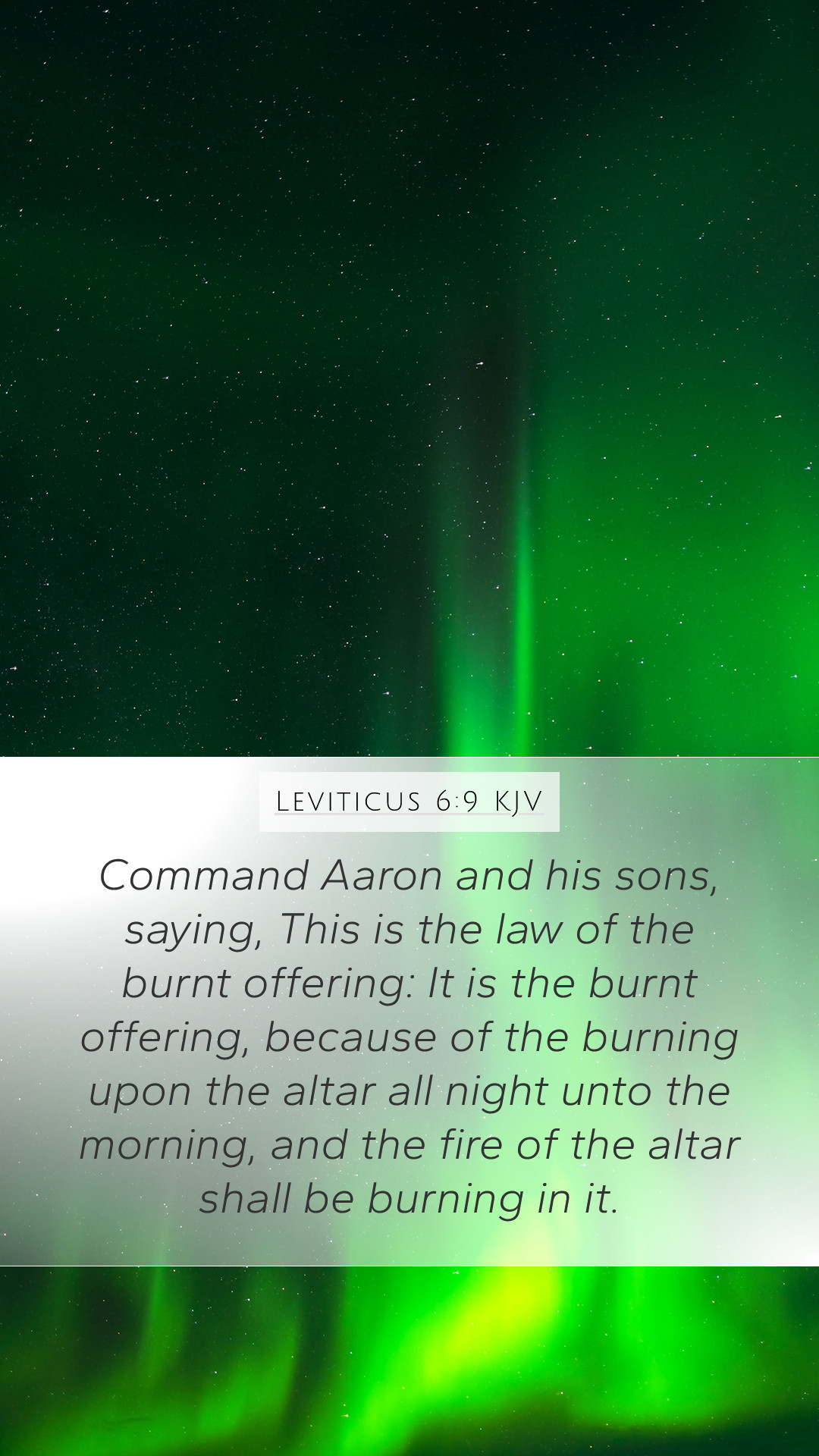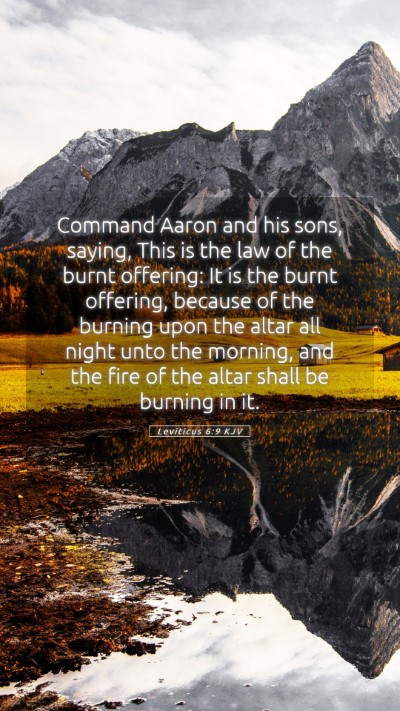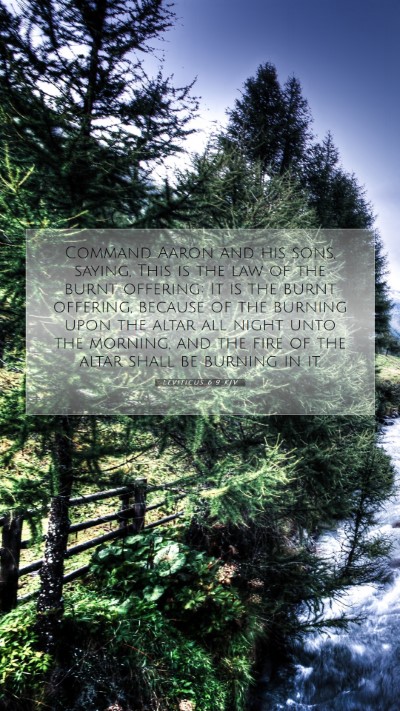Bible Verse Commentary on Leviticus 6:9
In Leviticus 6:9, God commands Moses to instruct Aaron and his sons regarding the burnt offerings that are to be made on the altar. This verse is significant as it provides insights into the sacrificial system established in the Israelite community and outlines various aspects of worship and atonement in the Old Testament.
Summary of Leviticus 6:9
This verse reads:
"Command Aaron and his sons, saying, This is the law of the burnt offering: It is the burnt offering, because of the burning upon the altar all night unto the morning; and the fire of the altar shall be burning in it."
Historical Context
The book of Leviticus focuses on the laws regarding worship and the sacrificial system prescribed for the Israelites, serving both to maintain obedience and to symbolize their covenantal relationship with God.
Bible Verse Meanings
- Command to Aaron and His Sons: The command emphasizes the importance of priestly authority in the worship practices of the Israelites. It signifies that the priests must be well-informed and obedient to God's instructions.
- Law of the Burnt Offering: This term implies a regulated and formalized system of worship. The burnt offering was entirely consumed by fire, symbolizing total surrender to God.
- Significance of the Fire: The perpetual fire on the altar represents divine presence and the ongoing need for atonement and devotion. It was a continual reminder of Israel's relationship with God.
Insights from Public Domain Commentaries
The interpretation of Leviticus 6:9 draws heavily on insights from notable biblical scholars:
Matthew Henry's Commentary
Henry notes that the burnt offering is a symbol of dedicating oneself fully to God. He highlights the necessity of the offering being completely consumed, which signifies that the worshiper is offering their entire life in service to God. The continuous fire emphasizes that the commitment should not flicker or fade.
Albert Barnes's Exposition
Barnes elaborates on the aspect of the eternal flame, suggesting that it acts as a reminder that God’s presence should always be sought in the lives of the people. He discusses the implications of having a fire that is maintained day and night, indicative of a consistent and unbroken fellowship with God.
Adam Clarke's Commentary
Clarke provides historical insight tying the burnt offering to sin and atonement, reinforcing the idea that such offerings were vital for reconciling the Israelites with God. He emphasizes the need for sincere offerings that come from a repentant heart as opposed to mere ritual compliance.
Practical Applications and Themes
The teachings derived from Leviticus 6:9 can be integrated into modern Christian practice:
- Commitment: Just as the burnt offering was a complete sacrifice, believers are called to dedicate all aspects of their lives to God, recognizing His sovereignty.
- Constant Worship: The notion of a perpetual fire invites followers to maintain a consistent relationship with God through prayer and worship.
- Awareness of Atonement: Understanding the need for atonement remains relevant today, as Christians seek forgiveness through Jesus Christ, reflecting the principles laid out in the Old Testament sacrificial system.
Bible Study Insights
To further understand Leviticus 6:9, consider engaging with the following Bible study resources:
- Bible Study Groups: Discussing this verse in a group setting can foster deeper understanding and shared insights among participants.
- Online Bible Study: Utilizing online platforms provides access to additional sermons and lectures that delve into the sacrificial systems of the Old Testament.
- Bible Study Tools: Various tools such as concordances and commentaries allow for thorough scriptural analysis.
Cross References
- Exodus 29:18: Discusses the burnt offering and its significance in the consecration of priests.
- Leviticus 1:9: Provides instructions on the burnt offering and its essential characteristics.
- Romans 12:1: Encourages believers to present their bodies as living sacrifices, connecting the theme of sacrifice to New Testament doctrine.
Conclusion
Understanding Leviticus 6:9 provides a glimpse into the heart of Old Testament worship and the deeper theological implications regarding sacrifice, commitment to God, and the pursuit of holiness. This verse serves as a reminder that as believers, they are called to a life of full dedication to God, embodying the spirit of the burnt offering in daily life.


